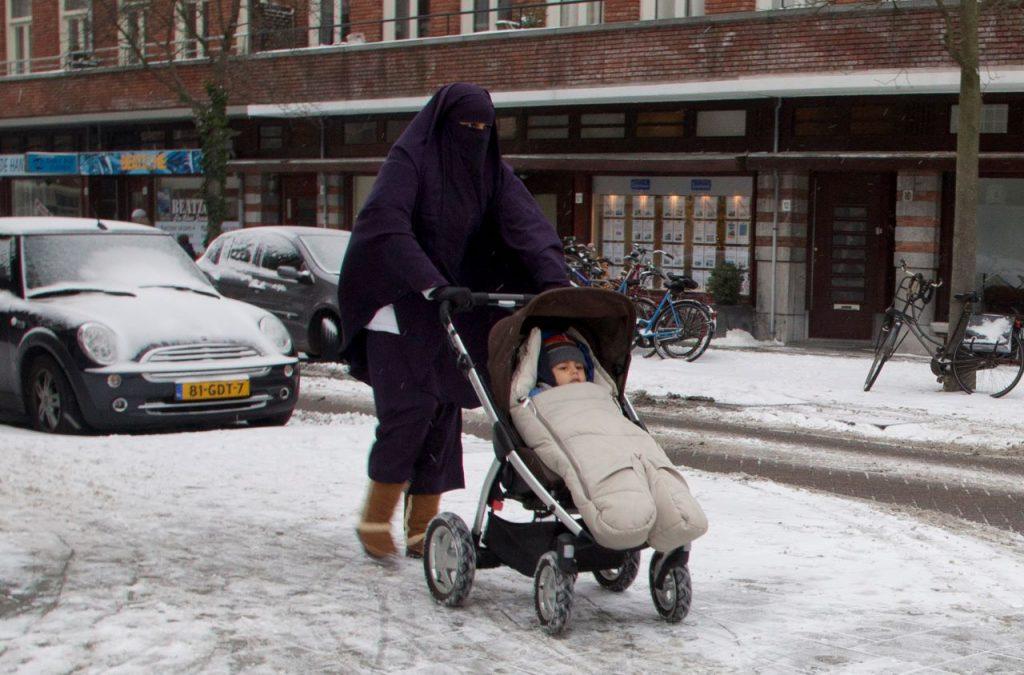Swiss outlaw face coverings in narrow vote on ‘burqa ban’
Although Islam was not mentioned, posters for the Yes campaign showed threatening looking women in black niqabs, and warned of Islamic extremism.
Just In
Switzerland has narrowly voted in favour of banning face coverings in public, including the burqa or niqab worn by some Muslim women.
Official results show the measure passed by 51.2% to 48.8% in Sunday’s referendum.
A leading Swiss Islamic group said it was “a dark day” for Muslims.
“Today’s decision opens old wounds, further expands the principle of legal inequality, and sends a clear signal of exclusion to the Muslim minority,” the Central Council of Muslims said in a statement, adding that it would challenge the decision in court.
The proposal in Sunday’s referendum did not mention Islam directly and was also aimed at stopping violent street protesters from wearing masks to disguise their identities.
However, The Swiss People’s Party’s posters showed threatening looking women in black niqabs, and warned of Islamic extremism. The vote was widely referred to as “the burqa ban”.
The latest proposal predated the coronavirus pandemic, which has meant all Swiss adults having to wear medical masks in many settings.
Many Swiss feminists view the burqa and niqab as oppressive to women but they also oppose laws telling women what they can and cannot wear.
Sanija Ameti, a member of Switzerland’s Muslim community, told the BBC that the campaign – and the depiction of Muslim women in the posters – had been upsetting.
“So many Muslims in Switzerland will feel insulted and not part of this society, and pushed into a corner where they don’t belong. We don’t look like these women in the pictures, we just don’t,” she said.
However, others in the Muslim community supported the ban.
Imam Mustafa Memeti, from the city of Bern, told the BBC he thought the motivation behind the campaign was “probably Islamophobic”, but he said he supported the ban anyway because it could help to emancipate Muslim women in Switzerland.
Ahead of the vote, Walter Wobmann, chairman of the referendum committee, described Muslim face coverings as “a symbol for this extreme, political Islam which has become increasingly prominent in Europe and which has no place in Switzerland”.
He said, “In Switzerland our tradition is that you show your face. That is a sign of our basic freedoms.”
The wearing of Islamic veils in public has been a controversial topic in other European countries.
France, the Netherlands, Denmark, Austria and Bulgaria have put in place full or partial bans on wearing face coverings.
Subscribe to our newsletter
To be updated with all the latest news and analyses daily.
